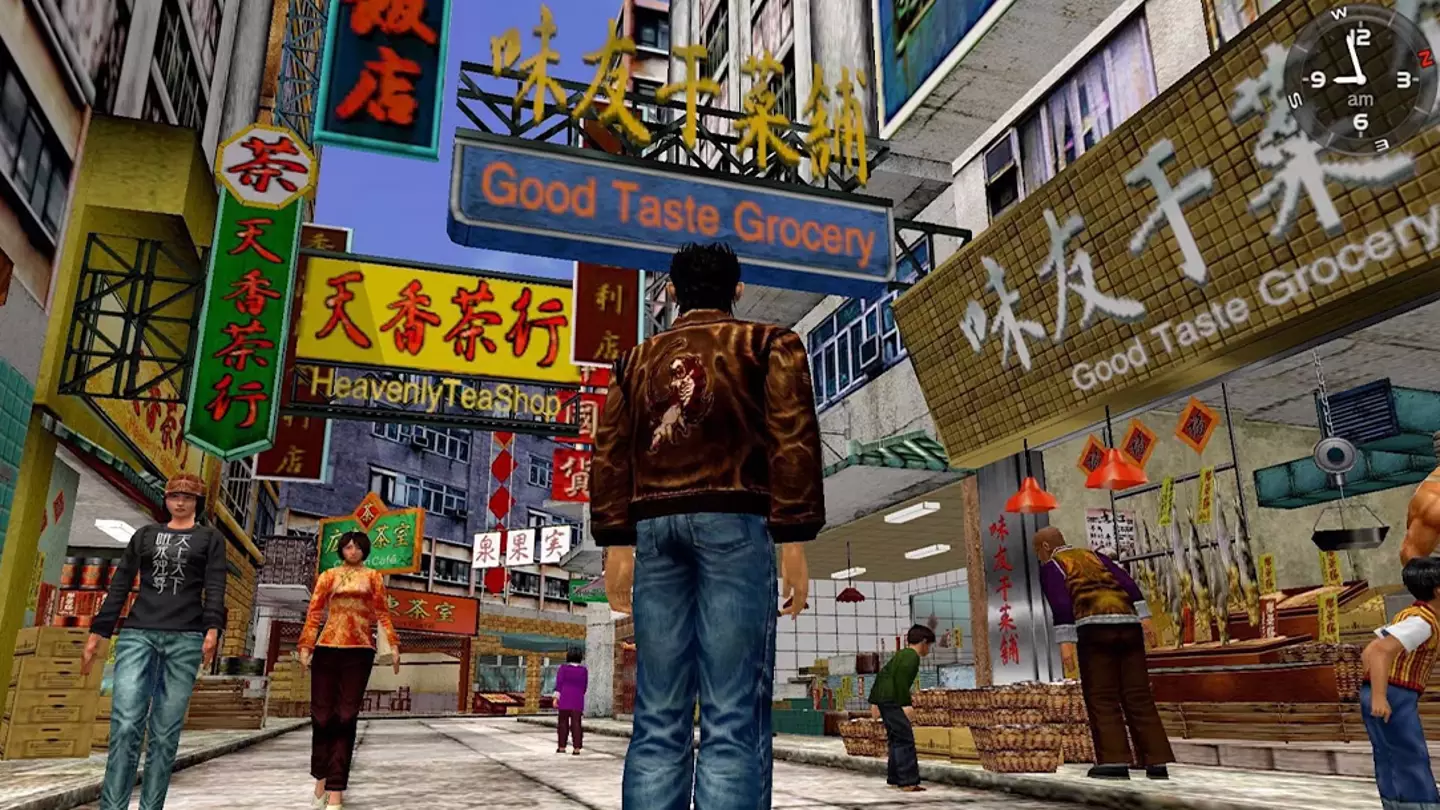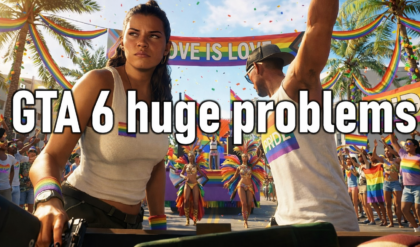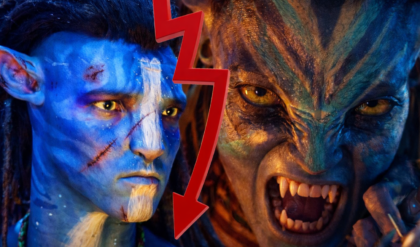
The gaming world thrives on debate—best graphics, toughest boss, greatest story—but few questions stir the pot like “What’s the most influential video game of all time?” In April 2025, the British Academy of Film and Television Arts (BAFTA) threw fuel on that fire with a public poll ahead of its 21st BAFTA Games Awards. The result? A shocker that’s left fans reeling, cheering, and arguing in equal measure: Sega’s 1999 Dreamcast classic Shenmue has taken the crown, beating titans like Doom, Super Mario Bros., and The Legend of Zelda: Ocarina of Time. How did a cult hit from the turn of the millennium outshine household names? What does this say about influence in gaming? Let’s dive into the poll, the winner, and the uproar it’s unleashed.
The Poll: A Global Call to Arms
BAFTA’s no stranger to spotlighting gaming’s elite—its annual awards on April 8, 2025, will honor 2024’s best like Senua’s Saga: Hellblade 2 and Astro Bot. But this year, they turned the mic to the public, asking players worldwide to vote for the game that’s shaped the medium most. Launched in February 2025, the poll was a free-for-all: no shortlist, just a blank slate for fans to name their pick. “Influence can mean anything,” BAFTA teased. “A genre pioneer, a cultural juggernaut, or a personal revelation.” Over weeks, thousands cast votes, spanning decades from Pong to Baldur’s Gate 3. The top 21, revealed April 3, 2025, crowned Shenmue king—a result few saw coming.
The top five? Shenmue, Doom (1993), Super Mario Bros. (1985), Half-Life (1998), and The Legend of Zelda: Ocarina of Time (1998). Heavyweights like Minecraft (6th), Tetris (11th), and Grand Theft Auto III (19th) trailed behind. Newer entries—Kingdom Come: Deliverance 2 (7th, out just two months) and Baldur’s Gate 3 (16th)—snuck in, hinting at recency bias or fan brigading. It’s a list as eclectic as gaming itself, but Shenmue’s victory has everyone asking: why this game, and why now?
Shenmue: The Unexpected Champion
Released in 1999, Shenmue was Yu Suzuki’s magnum opus—an open-world action-adventure following Ryo Hazuki’s quest to avenge his father’s murder in 1980s Yokosuka, Japan. It was a technical marvel, with a living city of NPCs on schedules, day-night cycles, and weather shifts. You could fight gangsters, race forklifts, or hunt sailors for clues—a sandbox of detail that cost a then-record $70 million. Critics adored its ambition, but sales flopped; the Dreamcast’s demise sealed its fate as a cult classic, not a blockbuster. Sequels in 2001 and 2019 kept the flame alive, but Shenmue never hit mainstream heights.
So why “most influential”? BAFTA credits it as the “blueprint” for open-world gaming. Quick Time Events (QTEs), reactive environments, and cinematic storytelling—Shenmue pioneered these, paving the way for Grand Theft Auto, Assassin’s Creed, and Yakuza. “It asked, ‘How real can a game be?’” Suzuki said in a statement, beaming with pride. “This honor shows that challenge still resonates.” Fans agree its DNA runs deep—Yakuza creator Toshihiro Nagoshi, a Shenmue alum, built a franchise on its quirky realism. Yet its top spot over genre-definers like Mario or Doom? That’s where the roast begins.
The Fandom’s Frenzy
The announcement hit like a Molotov cocktail. On X, @nagcoza marveled, “Shenmue beats Zelda, Mario, Doom—most influential ever!” while @playswave_com hailed its “open-world pioneer” status. Reddit’s r/Gaming erupted with “Based asf” cheers alongside “Shenmue #1? April Fool’s came late” snark. Twitch chats buzzed with “Forklift meta confirmed,” and YouTubers like Camelworks dissected its legacy, pulling millions of views. The Shenmue Dojo fanbase—infamous for renting Times Square billboards to push Shenmue 4—likely mobilized hard, turning a niche love into a poll juggernaut.
But not everyone’s toasting. “Mario saved gaming, Doom birthed FPS—Shenmue’s a forklift simulator,” @tacet_mort3m quipped on X. r/Bloodborne fans, still salty over no remaster, called it “Sony’s next L.” Doom’s John Romero and Minecraft’s Mojang congratulated Suzuki, but skeptics cried foul. “Public polls are a mistake,” an r/ElderScrolls user groaned, eyeing Skyrim’s lowly 14th. Kingdom Come: Deliverance 2’s 7th place—barely two months old—fueled “brigading” theories. “Shenmue’s great, but #1? Over Tetris?” Polygon’s Oli Welsh mused, calling it a “passionate fan” quirk.
Why Shenmue Struck Gold
Let’s break it down. Shenmue’s influence isn’t sales—it’s vision. Before GTA III (2001) made open worlds a cash cow, Shenmue built a microcosm of life. NPCs had names, routines, voices—unheard of in 1999. QTEs, now a staple (love ’em or hate ’em), debuted here, blending action with cutscenes. Its “FREE” (Full Reactive Eyes Entertainment) system let you interact with damn near everything—open drawers, play arcade games, buy gacha toys. “It’s the granddaddy of detailed sandboxes,” comedian Phil Wang told BAFTA, tracing its echo in Assassin’s Creed’s bustling cities.
Contrast that with runners-up. Super Mario Bros. (3rd) birthed platformers and mascots, saving Nintendo and gaming post-1983 crash. Doom (2nd) defined FPS, its shareware model revolutionizing distribution. Half-Life (4th) fused narrative with shooters; Ocarina (5th) set 3D adventure standards. Shenmue’s win isn’t about raw impact—it’s about fans rewarding ambition. “It dared to be weird,” The Guardian’s Keith Stuart wrote. “In a blockbuster world, that still matters.” Its quirky charm—think forklift races amid a revenge tale—lives on in Like a Dragon’s absurdity.
The Controversy: Fair or Fanboyism?
Critics aren’t buying it. “Mario and Doom shaped genres—Shenmue shaped QTEs,” an X user scoffed. GTA III (19th) arguably owes more to Driver than Shenmue, yet its open-world boom dwarfs Ryo’s tale. Tetris (11th) transformed casual gaming; Minecraft (6th) redefined creativity. “Influence needs time,” an r/Gaming thread argued—Kingdom Come: Deliverance 2’s high rank reeks of hype, not legacy. Shenmue’s 1999 splash was big, but its commercial flop (selling under 1.5 million) questions its reach. Did a vocal minority—like last year’s Lara Croft iconic character win—skew the vote?
BAFTA shrugs. “Influence isn’t popularity,” a spokesperson told ITV News. “Shenmue’s design DNA is in every major open-world title.” Fair, but Skyrim (14th) inspired a generation of RPGs, and World of Warcraft (15th) built MMOs—both feel under-ranked. “Public polls favor cults over classics,” IGN noted, calling it a “head-scratcher.” Still, Suzuki’s thrilled: “The story’s not over—more to come!” he teased, hinting at Shenmue 4 dreams.
The List: Hits and Head-Scratchers
The top 21’s a wild ride. Super Mario 64 (8th) nailed 3D movement; Half-Life 2 (9th) pushed physics and story. The Sims (10th) birthed life sims; Tomb Raider (12th) gave us Lara. Pong (13th) kicked off gaming; Metal Gear Solid (14th) stealth-redefined. Baldur’s Gate 3 (16th) and Final Fantasy VII (17th) shine as RPG giants, but Dark Souls (18th) at 18th feels low—its “Soulslike” genre’s everywhere. GTA III (19th) and Warcraft (15th) seem snubbed, while Kingdom Come’s 7th baffles—great, but influential already? Missing giants like Resident Evil, Halo, or Street Fighter raise brows.
Why It Matters
This isn’t just a poll—it’s a mirror. Shenmue’s win celebrates risk over safe bets, quirks over polish. It’s a nod to gaming’s weirdos, the dreamers who push boundaries even if sales tank. “It shows gamers still love the strange,” Stuart wrote. Yet it’s a Rorschach test—some see genius, others fanboy noise. For BAFTA, it’s a hype machine for April 8’s awards, where Black Myth: Wukong and Balatro vie for Best Game. For fans, it’s a battle cry: “Our voice counts.”
The Aftermath
X roasts roll on—“Oregon Trail outshines GTA next,” @tacet_mort3m joked. r/Gaming plans counter-polls; Shenmue’s Steam page sees a nostalgia bump. Sony’s Bloodborne snub (unlisted) fuels separate ire—ironic, given PlayStation’s 2025 Indiana Jones flex. CDPR’s Cyberpunk 2077 and Bethesda’s Elder Scrolls VI teams watch, knowing fan passion can rewrite history. Shenmue’s crown might not rewrite canon, but it proves gaming’s past is alive—and its fans won’t let it die quietly.
A Legacy Reborn?
Shenmue’s win isn’t about topping sales charts—it’s about topping imagination. It dared to simulate life when others chased scores. Fans now dream of remasters or a Switch 2 port; Suzuki’s “more to come” fuels Shenmue 4 buzz. Will it shift BAFTA’s 2025 awards? Doubtful—but it’s shifted discourse. “Influence isn’t dead,” an X user mused. “It’s just hiding in Yokosuka.” As Tamriel, Night City, and Hyrule loom large, Shenmue’s quiet victory reminds us: sometimes the underdog bites hardest. The poll’s done, but the fight’s just begun.





